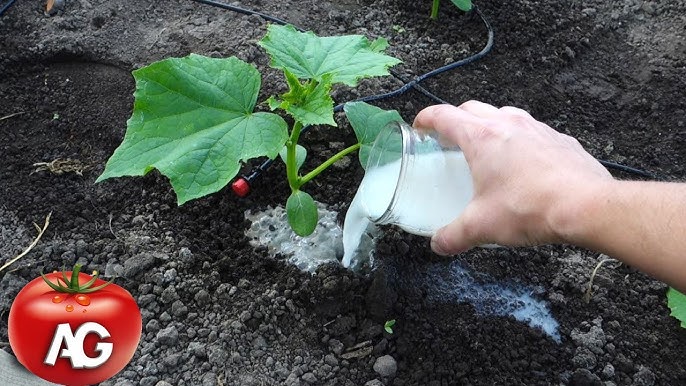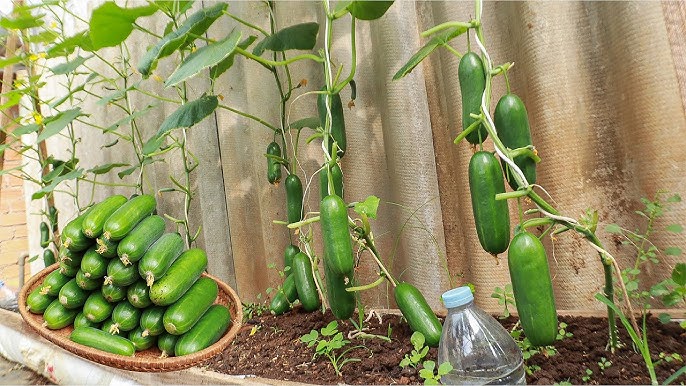For gardening enthusiasts and cucumber lovers, there’s unparalleled joy in harvesting a bountiful crop of fresh, crisp cucumbers. If you’ve ever wondered how to maximize your cucumber yield naturally, this guide is for you. By integrating organic fertilizers and proven gardening techniques, you can double your cucumber harvest while nurturing a healthy, sustainable garden. Let’s dive into the strategies that will transform your cucumber-growing experience.
1. The Advantage of Organic Fertilizers
Organic fertilizers are more than just plant food—they enrich the soil, enhance its structure, and foster a thriving ecosystem of beneficial microorganisms. Unlike synthetic fertilizers, they are eco-friendly and reduce the risk of harmful chemical runoff. By using natural fertilizers, you ensure that your cucumber plants grow vigorously, producing a higher yield.
2. Compost: The Foundation of Fertility
Compost, often called « gardener’s gold, » is a cornerstone of organic gardening. It is rich in nutrients, improves water retention, and enhances soil fertility. Adding compost to your cucumber beds provides a steady stream of nutrients, ensuring consistent growth and abundant fruit production throughout the growing season.
3. Worm Castings: Nature’s Superfood for Plants
Worm castings, or vermicompost, are nutrient-dense and teeming with beneficial microbes. These tiny powerhouses promote strong root systems and improve soil health. Mix worm castings directly into the soil or use them as a top dressing to give your cucumber plants the boost they need for exceptional yields.
4. Fish Emulsion: A Nitrogen-Rich Elixir

Nitrogen is critical for the lush foliage and vigorous vines cucumbers require. Fish emulsion, a natural nitrogen source, is easy to apply and highly effective. Dilute it and use it as a liquid feed during the growing season to encourage robust plant growth and plentiful cucumbers.
5. Liquid Seaweed Extract: A Nutritional Multitool
Liquid seaweed extract offers a complete package of nutrients, trace elements, and natural growth hormones. It enhances nutrient absorption, boosts plant resilience, and improves overall health. Use it as a foliar spray or soil drench to maximize your cucumber plants’ potential and increase your harvest.
6. Epsom Salt: Magnesium Magic
Magnesium is essential for chlorophyll production and photosynthesis in cucumber plants. Epsom salt, or magnesium sulfate, addresses magnesium deficiencies effectively. A simple foliar spray of Epsom salt solution can invigorate your plants, resulting in healthier foliage and a surge in fruit production.
7. Mulching: The Secret to Consistent Growth
A layer of mulch around your cucumber plants helps retain soil moisture, regulate temperature, and suppress weeds. Organic mulches, such as straw or wood chips, reduce water stress and create an optimal growing environment, directly contributing to higher yields.
8. The Basics: Watering and Sunlight
Even with the best fertilizers, cucumbers need proper care to thrive. Ensure your plants receive at least 1 inch of water weekly, maintaining consistent moisture in the soil. Position your cucumber beds to receive full sun exposure, as these plants flourish in bright light.
Summary: Your Path to Cucumber Abundance
By incorporating natural fertilizers like compost, worm castings, fish emulsion, liquid seaweed extract, and Epsom salt into your gardening routine, you can significantly enhance the health and productivity of your cucumber plants. Pair these organic techniques with proper watering, ample sunlight, and strategic mulching, and you’ll soon enjoy a harvest that exceeds your expectations.
Embrace these eco-friendly practices and watch your garden flourish. Whether for fresh salads, tangy pickles, or cooling cucumber water, your homegrown bounty will bring joy to your table. Happy gardening—and don’t forget to share your success with fellow gardening enthusiasts!
